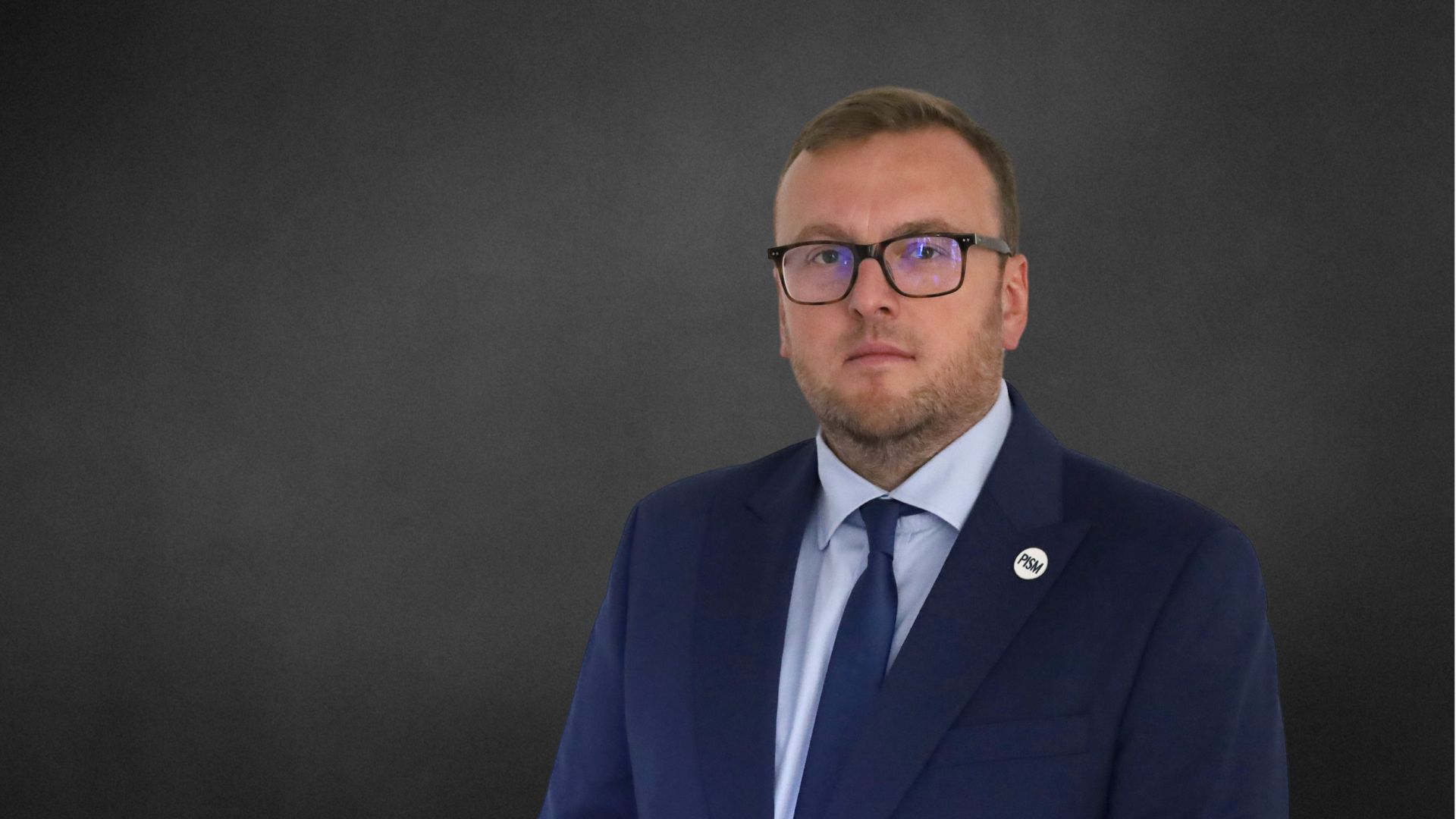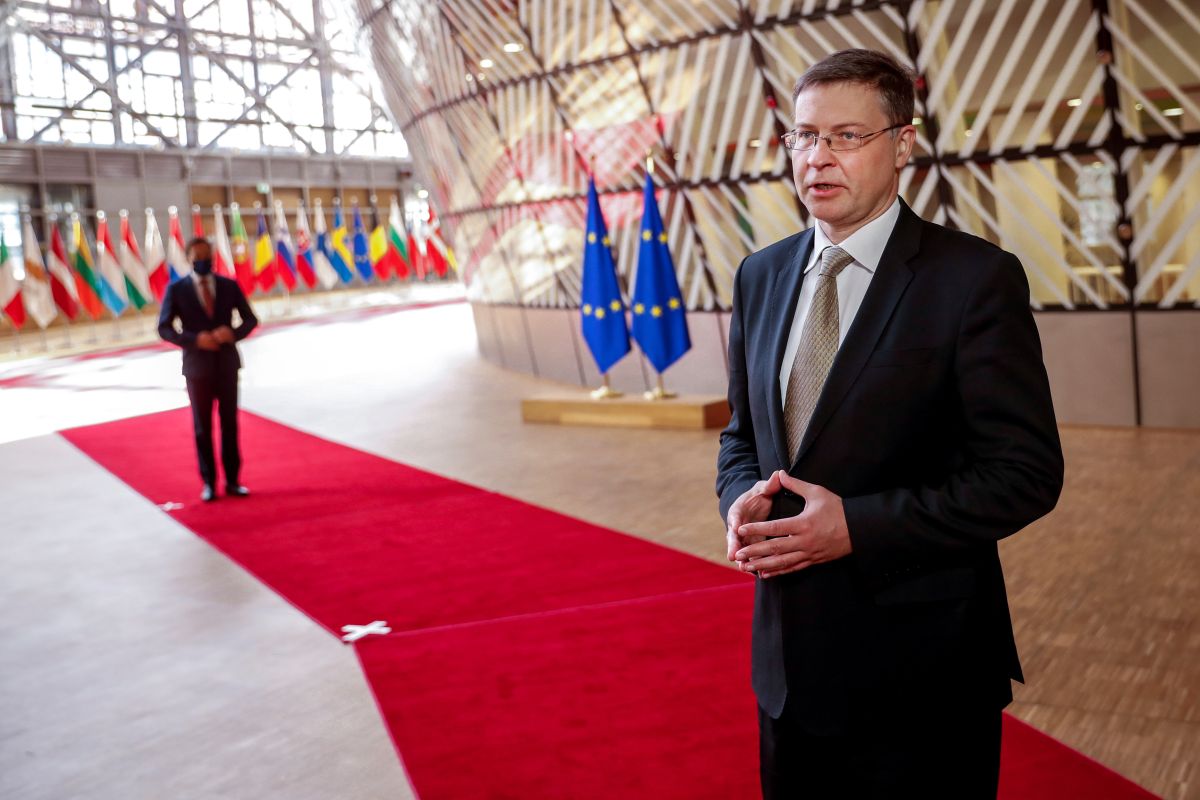EU to Weigh Up Georgia's European Perspective
Later this year, in December, the European Council (Council) will decide whether to grant Georgia candidate status for membership in the European Union. Unlike Ukraine and Moldova, Georgia did not receive it in June for stalling reforms, democratic regression, and an ambiguous attitude towards Russian aggression against Ukraine. A positive decision even in the context of Georgia’s failure to meet EU-recommended reforms could influence a renewal of the country’s pro-Western foreign policy direction. At the same time, it could bolster the ruling Georgian Dream (GD) party ahead of the 2024 elections, making it easier for the party to defeat its opposition.
.jpg) ZURAB JAVAKHADZE / Reuters / Forum
ZURAB JAVAKHADZE / Reuters / Forum
Georgia applied for EU membership in March 2022, following Ukraine and Moldova. Its EU accession effort was supported by the opposition and non-partisan President Salome Zourabichvili. In June 2022, however, the European Council decided against it, pointing to growing problems in Georgia with democracy, media freedom, and the independence of the judiciary (e.g., questioning the integrity of elections, beatings of journalists, dependence of the judiciary on the executive branch). At the same time, the European Commission (EC) made 12 recommendations to Georgia, the fulfilment of which was to allow it to gain candidate status in the future. An assessment of the implementation of the recommendations was planned for the end of last year, but at the request of the Georgian authorities the deadline was moved to the end of 2023.
EC Recommendations and Implementation
The recommendations mainly concerned strengthening the independence of state institutions and the rights of discriminated groups, media freedom, and civil society. The Commission noted the need for political depolarisation and de-oligarchisation of the political system, as well as the need to reform the judicial system. According to the Georgian authorities, the recommendations have been implemented to a level of about 80%. However, the Georgian opposition and NGOs have a different view. In it, Georgia has fulfilled only those guidelines that did not carry political costs for the authorities, such as strengthening the fight against organised crime or violence against women. On systemic issues (de-oligarchisation, judicial reform, media freedom), only limited progress has been made, often through the adoption of half-hearted legislation that has not been implemented anyway. At times, the situation has even worsened, for example, there is increased political polarisation.
Commission President Ursula von der Leyen and Council President Charles Michel frequently refer in public statements to Georgia’s progress in implementing the recommendations. They point out that the actions of the Georgian authorities are insufficient (e.g., reform of the judiciary and election law) and often contradict EU standards (e.g., the draft law on so-called foreign agents). However, they try to motivate the Georgian side by emphasizing the country’s European future. The EC is expected to publish its final report on the fulfilment of the recommendations in mid-October this year.
Anti-Western Rhetoric and Actions of the Georgian Authorities
In recent months, the Georgian authorities have escalated disputes with their Western partners, stepping up anti-Western rhetoric in the process. In this way, they wanted to obscure their aversion to the Commission’s recommendations, the implementation of which could weaken the ruling party ahead of parliamentary elections in 2024. The disputes between the EU and the Georgian authorities include a draft law on so-called foreign agents, which would target media outlets and NGOs financed with foreign funds that comprise at least 20% of their budget. The draft law was met with international criticism and sparked protests in the country, which forced those in power to back down.
Besides proposed changes in law, Georgia has pursued an ambiguous policy regarding Russia’s invasion of Ukraine. In May, Georgian Prime Minister Irakli Garibashvili, during the Globsec conference in Bratislava, blamed NATO for contributing to Russian aggression with its enlargement policy. On the one hand, the Georgian authorities call for an end to the conflict, while on the other, they accuse their Western and Ukrainian partners of expecting them to pursue a confrontational policy towards Russia - described as a “second front” that could result in a new military intervention in Georgia. In their view, only then could Georgia count on candidate status.
The Western partners’ perception of Georgia is also adversely affected by the Georgian government’s positive reaction to Russian decisions to resume air links between Russia and Georgia and to abolish visas for Georgians. The Georgian government’s stance on both issues has been condemned by the opposition and Western partners.
The divergence of Georgia’s and the EU’s foreign policy priorities is also evidenced by the country’s increasingly rare adherence to the EC’s decisions under the EU’s Common Foreign and Security Policy. Between January and May this year, Georgia joined 31% of EC decisions, while for Moldova and Ukraine the rate was 54 and 89%, respectively.
Polarisation of the Political Scene
Georgia’s chances of receiving candidate status are adversely affected by the political polarisation that has persisted for years, with the main actors being GD and the largest opposition party, the United National Movement. The dispute concerns assessments of former President Mikheil Saakashvili time in power, foreign policy (the opposition accuses GD of pro-Russianism, and in its third term, GD has indeed increasingly begun to accommodate Russian interests), the state of democracy, and economic policy. The conflict is exacerbated by strained relations between the government and the president, who criticises its rhetoric and actions. Zourabichvili is lobbying in European capitals for Georgia to be granted candidate status, while the Georgian government is making it difficult for her to organise foreign visits.
The political conflict is reinforced by the case of Saakashvili, who has been in prison for a year and a half over sentences related to abuse of power. Saakashvili has spent the last year in incarceration in the hospital due to his deteriorating health. However, the Tbilisi court has not agreed to suspend his prison sentence or allow him to go abroad for treatment. The current president has the right of grace - a prerogative whose use in this situation could improve Georgia’s international image - however, for now she is reluctant to use it, recognising that her predecessor should bear the consequences of abuses of power during his time in office. The case of the former president is one of the factors focusing the international community’s attention and criticism on Georgia.
Despite these problems and divisions in Georgian society, there is a will for European integration that unites almost all citizens. As many as 89% of respondents favour Georgia’s integration into the EU - the highest level of support for it in the country’s history, and the authorities must reckon with this deep pro-European public sentiment.
Conclusions and Outlook
The conduct of the Georgian authorities raises questions about the sincerity of their declarations and their real intentions regarding the direction of the country’s foreign policy. Fulfilling the EU's recommendations and actually implementing systemic reforms, including strengthening democratic institutions such as independent media and the judiciary, would likely weaken the GD’s position and limit its chances of winning the 2024 parliamentary elections. For the party, extending power for a fourth term appears to be the main priority.
A new refusal to grant Georgia candidate status could be used by GD to undermine Georgians’ pro-European stance. The EU may decide instead to conditionally grant Georgia candidate status (at present, this scenario seems most likely) despite its failure to fulfil all 12 recommendations in full, not wanting to discourage the pro-European-minded Georgian public. In this way, it would be responding to Georgians’ aspirations while depriving the power camp of arguments for rapprochement with Russia, especially since granting the status is not tantamount to Georgia’s future EU membership. However, the GD could use this solution to its advantage in the election campaign to promote its efforts despite criticism from the opposition and EU doubts.
Saakashvili’s fate also will have a significant impact on Georgia’s image and its prospects for EU integration. One possible way of resolving the issue may be the virtual pardon of the former head of state by the current president. She recently decided to take a similar step with Nika Gvaramia, the former justice minister and head of the opposition private television station Mtavari Arxi who was convicted of alleged irregularities in the management of the station. Regardless of the decision about candidate status, the EU should continue to support Georgian civil society financially and politically, which will be important in the context of next year’s parliamentary elections.



